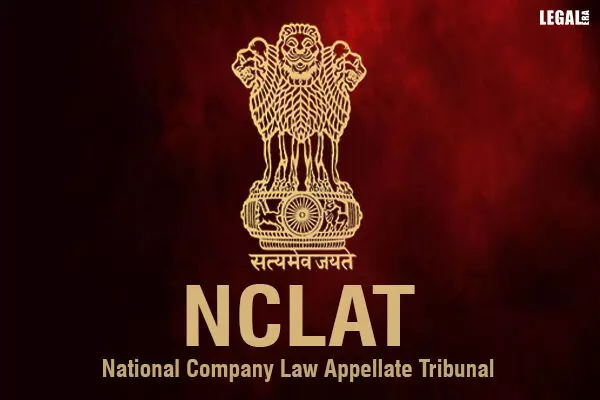- Home
- News
- Articles+
- Aerospace
- Artificial Intelligence
- Agriculture
- Alternate Dispute Resolution
- Arbitration & Mediation
- Banking and Finance
- Bankruptcy
- Book Review
- Bribery & Corruption
- Commercial Litigation
- Competition Law
- Conference Reports
- Consumer Products
- Contract
- Corporate Governance
- Corporate Law
- Covid-19
- Cryptocurrency
- Cybersecurity
- Data Protection
- Defence
- Digital Economy
- E-commerce
- Employment Law
- Energy and Natural Resources
- Entertainment and Sports Law
- Environmental Law
- Environmental, Social, and Governance
- Foreign Direct Investment
- Food and Beverage
- Gaming
- Health Care
- IBC Diaries
- In Focus
- Inclusion & Diversity
- Insurance Law
- Intellectual Property
- International Law
- IP & Tech Era
- Know the Law
- Labour Laws
- Law & Policy and Regulation
- Litigation
- Litigation Funding
- Manufacturing
- Mergers & Acquisitions
- NFTs
- Privacy
- Private Equity
- Project Finance
- Real Estate
- Risk and Compliance
- Student Corner
- Take On Board
- Tax
- Technology Media and Telecom
- Tributes
- Viewpoint
- Zoom In
- Law Firms
- In-House
- Rankings
- E-Magazine
- Legal Era TV
- Events
- Middle East
- Africa
- News
- Articles
- Aerospace
- Artificial Intelligence
- Agriculture
- Alternate Dispute Resolution
- Arbitration & Mediation
- Banking and Finance
- Bankruptcy
- Book Review
- Bribery & Corruption
- Commercial Litigation
- Competition Law
- Conference Reports
- Consumer Products
- Contract
- Corporate Governance
- Corporate Law
- Covid-19
- Cryptocurrency
- Cybersecurity
- Data Protection
- Defence
- Digital Economy
- E-commerce
- Employment Law
- Energy and Natural Resources
- Entertainment and Sports Law
- Environmental Law
- Environmental, Social, and Governance
- Foreign Direct Investment
- Food and Beverage
- Gaming
- Health Care
- IBC Diaries
- In Focus
- Inclusion & Diversity
- Insurance Law
- Intellectual Property
- International Law
- IP & Tech Era
- Know the Law
- Labour Laws
- Law & Policy and Regulation
- Litigation
- Litigation Funding
- Manufacturing
- Mergers & Acquisitions
- NFTs
- Privacy
- Private Equity
- Project Finance
- Real Estate
- Risk and Compliance
- Student Corner
- Take On Board
- Tax
- Technology Media and Telecom
- Tributes
- Viewpoint
- Zoom In
- Law Firms
- In-House
- Rankings
- E-Magazine
- Legal Era TV
- Events
- Middle East
- Africa
NCLAT reaffirms: IBC is not a Debt Recovery Mechanism

NCLAT reaffirms: IBC is not a Debt Recovery Mechanism
Holds that such an interpretation would undermine the purpose and scope of the Act
The Chennai Bench of the National Company Law Appellate Tribunal (NCLAT) has dismissed an appeal against the order of the Bengaluru Bench of the National Company Law Tribunal (NCLT), which rejected an application under Section 9 of the Insolvency and Bankruptcy Code (IBC), 2016.
NCLT had turned down the application by Maulik Kirtibhai Shah (Operational Creditor) seeking initiation of a Corporate Insolvency Resolution Process (CIRP) against United Telecom Limited (Corporate Debtor).
The bench comprising Justice M. Venugopal (Judicial Member) and Shreesha Merla (Technical Member) held that the IBC was not a ‘recovery mechanism’. The definition of ‘Operational Debt’ could not be interpreted to include any agreement between the parties that does not specifically pertain to the supply of goods or services. Thus, such an interpretation would undermine IBC’s purpose and scope.
The Corporate Debtor (CD) had issued cheques post the Settlement Agreement but those were dishonored. The Operational Creditor (OC) provided ‘Business Development’ services to the CD for which it was entitled 1 percent commission as per an initial Memorandum of Understanding (MOU).
On completion of services, the OC requested for the payment. However, the CD induced the former to sign the Settlement Agreement, citing severe cash flow issues.
After partial payments, the total due was Rs.7.48 crores for which a demand notice was issued. Upon receiving it, the CD proposed to give only Rs.4.5 crores citing severe financial crises. To gain trust, it induced the OC to sign a new MOU and transferred Rs.50,00,000 into its account, promising to pay Rs.4 lakhs by providing cheques.
The appellant argued that since the MOU was signed by both parties, the CD was bound to the terms of the new agreement. Under IBC, the remaining amounts due and payable were considered ‘Operational Debt’. Thus, NCLT had erred in dismissing the application.
On the other hand, the CD denied entering into any agreement and argued there was a pre-existing dispute prior to the issuance of the demand notice as per the notice under Section 138 read with Section 141 of the Negotiable Instruments Act, 1881. It refused any inducement to sign any agreement, arguing that the principal amount was only Rs.2.8 crores with nearly Rs.2.75 crores already paid. This meant that as specified under IBC, the Rs.4.42 lakhs amount fell below the minimum threshold.
While dismissing the appeal, NCLAT emphasized that the petition pertained to claims arising from the disputed Settlement Agreement. It did not meet the definition of 'Operational Debt’ since it was anti-dated, apart from being unstamped and unregistered. Under IBC, Section 9, an application could only be filed for default in payment of Operational Debt as defined in Section 5 (21).
The tribunal added that even if the Settlement Agreement was considered, the claims stemming from the MOU lost their character as 'Operational Debt' and had become a debt simpliciter. Thus, the claims were contractual in nature and had to be pursued through appropriate civil proceedings.



